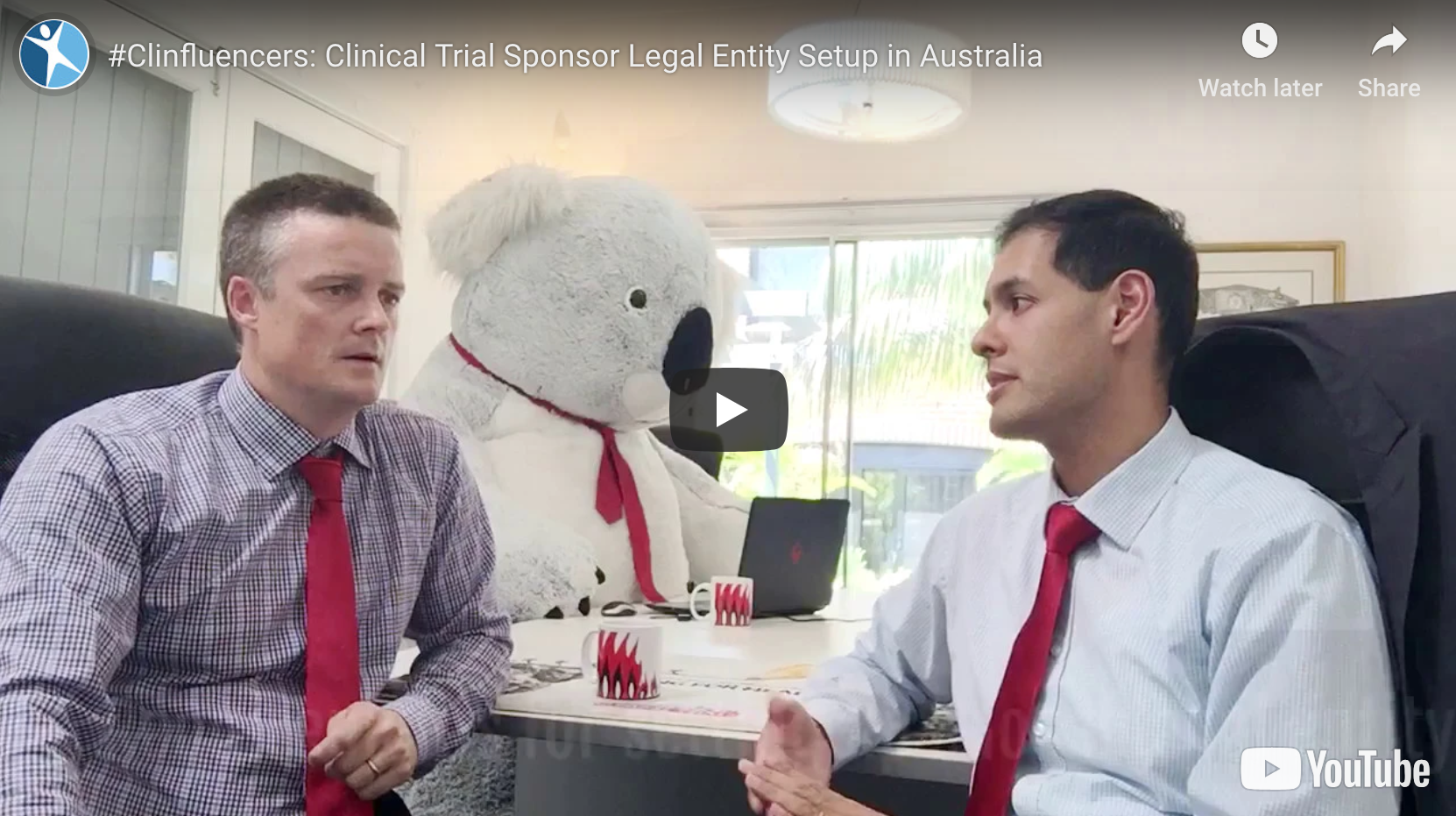#Clinfluencers: Clinical Trial Sponsor Legal Entity Setup in Australia

Australia is home to some of the best researchers and health professionals worldwide. This, coupled with its high standards in health infrastructure, makes it one of the most inviting places in the world to run a clinical trial. All clinical trials conducted in Australia must have a trial sponsor that is an Australian entity (an overseas company cannot be the sponsor of a trial in Australia). In this episode of the #clinfluencers series, we explore setting up a local entity in Australia for overseas Sponsors.
Company Setup
For those without any knowledge of setting up local entities, extending a clinical trial to Australia can seem daunting. However, setting up an Australian company is straight-forward, rapid, and cost effective. In Australia, there is no minimum share capital requirement, so it is common for companies to incorporate a share capital for as little as $1 AUD. The company must also appoint at least one director who resides in Australia. This person does not necessarily have to be a citizen, but they must have the right to live here, such as permanent resident, or someone on a work visa.
Requirements for Australian Companies
Australian companies must:
- Have a resident director
- Keep accounting records
- Be able to pay their debts when they are due
- Lodge tax returns
- Have a company audit conducted (if they are a subsidiary of a foreign parent company)
Advantages of Setting up a Company in Australia
Australia has no prescribed minimum capital for companies, and no required percentage of foreign ownership. What this means for you is that companies can be 100% foreign owned while still having a presence in Australia. The whole process of setting up a local entity – from registering with government authorities to setting up bank accounts – can be done within 4 to 6 weeks.
Australia’s tax year begins on the 1st of July and ends on the 30th of June, which is different to some other countries. Despite this, the local entity can apply for the balance date of the overseas parent company; particularly helpful for companies when aligning annual results for investors.
Australia also has a generous government incentive for R&D research. There are several criteria that must be met, but companies can claim back up to 43.5% of expenses At the very least, an overseas company must have a local entity in Australia to be eligible for this scheme. If you haven’t already, make sure to check out the first #clinfluencers video to learn more about how you can qualify for Australia’s R&D tax incentive.
For anyone interested in doing research in Australia, including company setup, get in touch with Moore Stephens or Datapharm Australia today.
Disclaimer: The advice given here is general in nature only, and is not intended to be legal advice. Before acting on this information, seek professional advice specific to your current situation.

